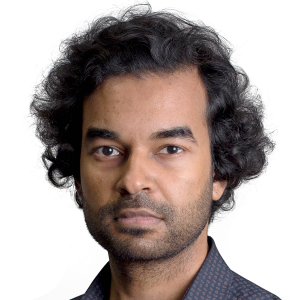Joseph Conrad and London’s enduring ethos of anything goes


Roula Khalaf, Editor of the FT, selects her favourite stories in this weekly newsletter.
Martial Bourdin lost his life, and Greenwich Park its tranquility, when his bomb prematurely detonated there in 1894. The bungling French anarchist was thought to be bound for the Royal Observatory, marker of the prime meridian and totem of rational order. He lived across town in Fitzrovia and moved among foreign radicals throughout London, which was, said The New York Times, days after his death, “the only refuge they have in Europe”.
The gruesome story moved a more benign émigré, Joseph Conrad, to publish The Secret Agent in 1907, which the BBC has adapted for television. Reviews dwell on the maudlin relevance of the terror theme to modern Europe, but the author’s insight into British laxity, as taken to extremes by the capital, would chime in any era.
In the mid-1990s, the French state deplored London’s hospitability to religious fundamentalists so long as they only masterminded trouble on the continent — a “covenant of security” UK officials denied. Before Bourdin was even born, London accommodated Karl Marx and his seditious work when France and Germany would not.
The city’s porousness to shady outsiders can make even the liberal-minded feel queasy. But it has become too easy to think of it as something recent and therefore aberrant. Wealth of questionable provenance in Mayfair, the migrant underworlds that vein the hipster East End and the newly polyglot suburbs, those incendiary clerics: these are not sharp deviations from London’s past. Tolerance, to a fault, seems encoded into the city.
The mystery is where it comes from, and one flattering answer is a commitment to liberal philosophy. The scariest character in the BBC series is Vladimir, an official at the Russian embassy (Conrad only implied his nationality) who bullies his agent into staging an “anarchist” attack to shock Britain out of its complacency. In the novel, he is the (tad too didactic) voice of reactionary Europe. “This country is absurd with its sentimental regard for individual liberty,” he says, livid with an “imbecile bourgeoisie” that abets the people who would “drive them out of their houses to starve in ditches”.

I wonder if it is that thought through. Most European nations are liberal in that they check government power. The Age of Reason lives on in their constitutions and handsomely planned cities. London tips over into something else. It has a taste for chaos, whose ultimate expression is the physical anarchy of the city itself — the architectural incoherence, the “labyrinthine obliquity” of its layout, as Peter Ackroyd puts it. You can see it from the hill on Greenwich Park: a weird panorama of Christopher Wren and Norman Foster, the Georgians and the Brutalists. In Conrad’s time, too, the city was a maze.
Liberalism is an ordering principle, a belief in something. What distinguishes London is more like nihilism. This receptiveness to anything (and anyone) makes for a city that, unlike some in Europe, changes like a living organism. But it also makes for an edge of real menace.
Ackroyd says London “calls to those whose one desire is to vanish”. People such as Bourdin were coming here to vanish long before “Londonistan” or “Moscow-on-Thames” become tabloid themes. Like the French Foreign Legion, London allowed them to erase their identities while keeping their hand in some action. The revival of The Secret Agent should reacquaint us with this history and end the pretence that our capital’s anything-goes ethos is an experiment that began around 2003. “London is open”, say posters across the city. Whether you say it as a boast or a rueful lament, it does not describe anything new.
Another reminder. Heart of Darkness, Conrad’s book about a journey up the Congo river, which he conceived on a sickbed in Dalston, is a story told by the protagonist to fellow sailors while docked on the Thames. The implied likeness between this rich, imperial city and a mysterious lair in Africa was not accidental. They have chaos in common, he thought.
Comments